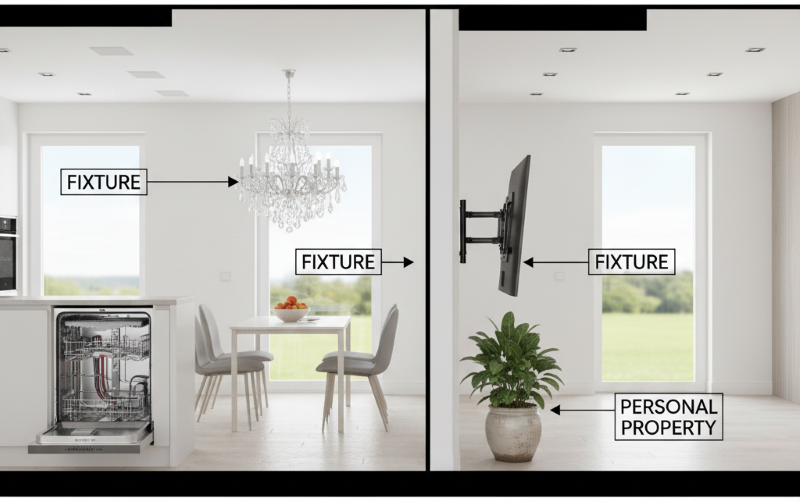
Defining a Fixture in Real Estate
In real estate, a fixture is any item of personal property that has been attached to the real property in a way that it becomes a part of the real property. Several examples include HVAC systems, built-in appliances like dishwashers, and even speakers mounted to a wall. The key characteristic is that the item is affixed to the property, and as a general rule, fixtures transfer with the property in a real estate transaction. This means that when a property is sold, the buyer is entitled to all fixtures unless otherwise specified in the sales contract.
The Problem of Ambiguity
While some items are clearly fixtures (like a dishwasher) and others are clearly personal property (like a potted plant), there are many gray areas. Solar panels are a perfect example of this ambiguity. Solar panels mounted on a roof are likely considered fixtures because they are attached to the building and removing them would likely cause damage. However, a solar panel simply staked into the ground on a rural property could be argued as personal property. To address this ambiguity and avoid disputes, it is advisable to specify which items are considered fixtures.
Securing an Interest: The "Belt and Suspenders" Approach
From a lender's perspective, the primary concern is ensuring a security interest in all items, whether they are fixtures or personal property. In Texas, a Deed of Trust is used as the security agreement for real property. When this document is filed in the real property records, it gives a lender a security interest in all things attached to the property. However, to cover all bases and avoid any doubt regarding items that may or may not be considered fixtures, it is prudent to file a UCC-1 financing statement with the Secretary of State. This statement secures an interest in personal property, providing an added layer of protection and ensuring that a lender's interest is secured regardless of how an item is classified.
All information provided on Silblawfirm.com (hereinafter "website") is provided for informational purposes only, and is not intended to be used for legal advice. Users of this website should not take any actions or refrain from taking any actions based upon content or information on this website. Users of this site should contact a licensed Texas attorney for a full and complete review of their legal issues.
